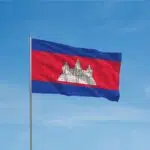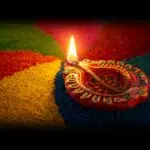Sikhs around the world celebrate Vaisakhi, or Baisakhi, depending on the Sikh calendar. This year, it takes place on April 14. Although most of the festivities associated with Vaisakhi take place around northern India, Sikhs around the world dedicate this special date to celebrating one of the most important observances in the Sikh calendar. Vaisakhi is essentially a celebration of the spring harvest in Indian and Sikh culture, and many consider this holiday to be the Indian Solar New Year as well.
History of Vaisakhi / Baisakhi / Vishu
Vaisakhi is one of the most significant annual celebrations in the Sikh religion and in India. Historically, it has always occurred in mid-April and started with the earliest crop harvest. As a religious celebration, it has consistently been a convivial observance with several festivities and communal celebrations. With time, this historic tradition began to take on other meanings and a new significance for Sikh history.
In the late 1600s, Guru Tegh Bahadur, the ninth of the ten gurus who founded the Sikh religion, was executed by the leaders of the Mughal Empire for refusing to convert to Islam. Shortly afterward, Guru Gobind Singh ascended as the tenth guru of the Sikh religion, who inaugurated the Khalsa identity in 1699. As the prominence of Sikh communities grew around the region, it triggered a conflict with Mughal authorities. As such, the Vaisakhi celebration became symbolic of the Sikh struggle for the recognition of their religion, as well as a commemoration of the Khalsa and its formation.
The Khalsa refers both to the community of believers in Sikhism and to a select group of devout Sikhs. With the creation of a unified Sikh state a few decades later, the Vaisakhi celebration took on another meaning for many Sikhs. As of today, Vaisakhi is not only a celebration of the new solar year but also an observance of the recognition of Sikh communities. As one of the most significant Sikh holidays, Vaisakhi festivities are numerous, including fairs, ceremonial harvest celebrations, and public performances.
Vaisakhi / Baisakhi / Vishu timeline
The ninth Guru is killed by Mughal authorities after refusing to convert to Islam.
Guru Gobind Singh gathers his followers at Shri Anandpur Sahib in celebration and proclaims the community of Sikhs (Khalsa).
After the Afghan-Sikh war, Ranjit Singh is proclaimed Maharaja of Punjab and creates the first Sikh unified state.
Vaisakhi becomes an international celebration observed by many Sikhs and non-Sikhs alike.
Vaisakhi / Baisakhi / Vishu FAQs
Who was the first Guru of the Sikh religion?
The first Guru of the Sikh religion was Guru Nanak, who first established the practices of Sikhism.
When was the first Vaisakhi?
The first Vaisakhi was celebrated in 1699, during the first proclamation of Khalsa in Punjab.
What is Khalsa?
In the Sikh religion, Khalsa can refer to either the community of believers in Sikhism or a select group of devotees.
How to Observe Vaisakhi / Baisakhi / Vishu
Take part in the celebrations
Many Sikh communities around the world celebrate Vaisakhi. As one of the most widely celebrated holidays, many festivities and events would be organized for this observance. Make sure to join them.
Visit Sikh communities
The Sikh communities are always welcoming. Especially during their most significant day in the calendar, you will be most welcome to celebrate Vaisakhi with Sikh communities and join in the festivities. Sikh communities are distinct in their traditions, food, and celebrations.
Read Sikh history
Sikh history is rich in interesting stories and significant events that can still resonate to this day. To understand the significance of Vaisakhi and its celebrations, you must begin by reading books on Sikh history.
5 Amazing Facts About Sikhs
The 10 Gurus
The Sikh religion was established by 10 gurus, all of whom are spiritual masters of Sikhism and made significant contributions to the religion.
Text is a Guru
The main Sikh scripture is known as Adi Granth and is often referred to as Guru Granth Sahib, considering the text to be the current Guru.
Sacred texts are poetry
The Guru Granth Sahib is an important text in the Sikh religion and is written in the form of a poem.
Sikh women have equal status
In the Sikh religion, there is no discrimination between men and women, and believers are obligated to treat women as equals.
Canada has the second-largest Sikh population
Although most Sikhs originate from Northern India, the second-largest Sikh community in the world, after India, is Canada.
Why Vaisakhi / Baisakhi / Vishu is Important
It commemorates the unification of a community
There are many events associated with Vaisakhi, and all of these are significant events in unifying Sikh communities in Northern India and recognizing their religion and identity. As of today, Vaisakhi is celebrated by Sikhs worldwide as a proclamation of their identity.
It brings the community together
Vaisakhi is one of the significant dates in the Sikh calendar that brings almost an entire community together. In many countries, Sikhs gather on this special day to celebrate their culture. As such, this event truly unites Sikh communities everywhere.
It celebrates Sikh history
Above all, the Vaisakhi observance is a celebration of Sikh history. This special holiday has consistently played an important role in creating Sikh communities, identity, and religion. It is a proclamation of Sikh history.
Vaisakhi / Baisakhi / Vishu dates
| Year | Date | Day |
|---|---|---|
| 2024 | April 13 | Saturday |
| 2025 | April 14 | Monday |
| 2026 | April 14 | Tuesday |





















